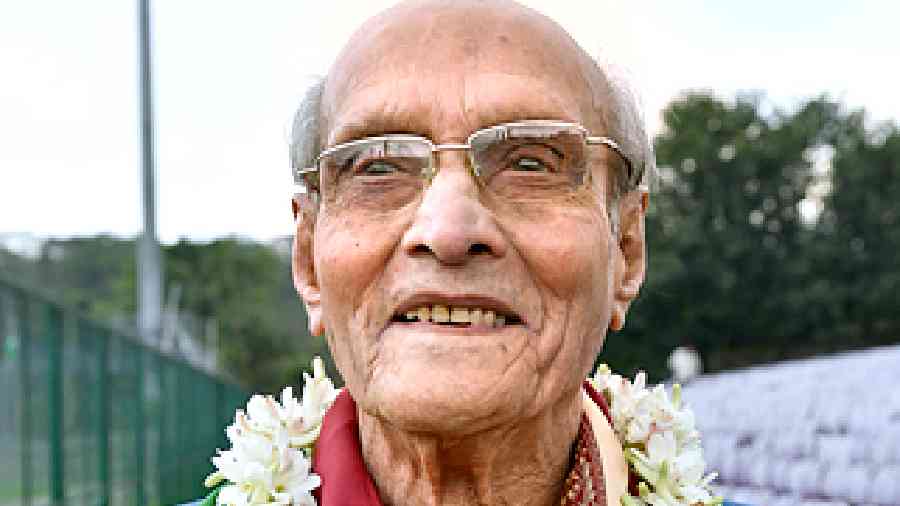Former India football team captain Samar ‘Badru’ Banerjee, who led the country to an only once fourth-place finish in the 1956 Melbourne Olympics, passed away in the early hours of Saturday after a prolonged illness.
He was 92. Banerjee is survived by his daughter-in-law.
Fondly known as ‘Badru Da’, he was suffering from a host of old-age related ailments.
He was admitted to the MR Bangur Hospital after testing positive for Covid-19 on July 27. After his health deteriorated, Banerjee was shifted to the SSKM Hospital.
Chief minister Mamata Banerjee condoled his death. Mohun Bagan, with which he spent close to eight years as a forward, and the All India Football Federation also paid tribute.
A Mohun Bagan Ratna (2019), his body was brought to the club tent later on Saturday. Indian football teams have participated in three Olympics and till date, the performance by the Banerjee-led 1956 side remains the best.
India finished fourth after losing to Bulgaria 0-3 in the bronze medal playoff. Having got a walkover in the first round, the Syed Abdul Rahim-coached side that also had the likes of PK Banerjee, Neville D’Souza and J ‘Kittu’ Krishnaswamy, defeated Australia 4-2.
D’Souza struck a hat-trick in that glorious win. But the team failed to make the final, losing 4-1 to Yugoslavia in the last-four stage.
As a mark of respect, a minute’s silence was observed in the Durand Cup matches in Calcutta and Imphal on Saturday.
“We were the last two surviving members of the 1956 Olympics squad. What is the point of living now, to see the worst days of Indian football?” the legendary Tulsidas Balaram lamented. “I feel sad and lonely now.”
Born on January 30, 1930, Banerjee’s footballing journey started with some local clubs in Bally.
At a time when there was little incentive for sportspersons, an 18-yearold Banerjee chose to become a footballer and went on to represent Bally Pratibha, a third division club in the Calcutta league.
There was no looking back after he was roped in by Bengal Nagpur Railway (BNR), before going on to make a mark at Bagan during a memorable stint.
There, he formed a deadly combination up front with Keshto Pal.











